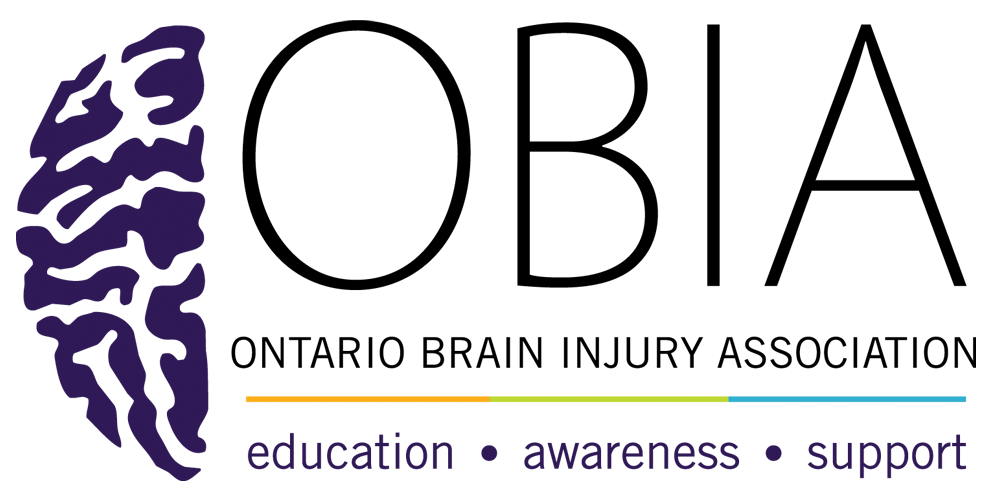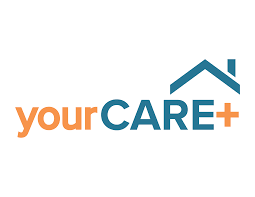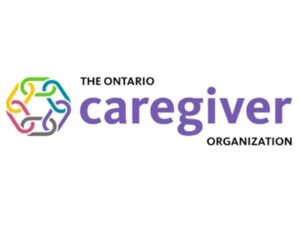OBIA Supports and Services
Toll-Free Helpline
The Toll-Free Helpline provides confidential, emotional support to anyone impacted by a brain injury, including those with a brain injury or concussion, family members and friends, and professionals. The Helpline empowers callers to cope with specific aspects of their life, offers information about brain injury, and makes appropriate community referrals.
You are not alone when dealing with difficult or challenging issues relating to Brain Injury we are here to help!
If you need support, please call 1-800-263-5404 or email: [email protected].
Online Concussion Support Groups
The Online Concussion Support Groups (run through our Online Connection and Inclusion Support Group Program) provides a safe place where individuals can share their frustrations and challenges and connect with others with similar experiences. A registered social worker facilitates the groups and teaches strategies to help manage symptoms of Post-Concussion Syndrome. Each group meets one hour per week for eight weeks by computer or phone.
There is no cost to participants; however, registration is required.
Click here to register for an upcoming group.
Online Caregiver Support Groups
The Online Caregiver Support Group (run through our Online Connection and Inclusion Support Group Program) provides a confidential place where individuals can share their experiences and challenges with others with similar experiences. A registered social worker facilitates the groups and teaches strategies to help manage the stresses associated with caring for a loved one with a brain injury. Each group meets one hour per week for eight weeks by computer or phone.
There is no cost to participants; however, registration is required.
Click here to register for an upcoming group.
Peer Support Program
The Peer Support Program connects an individual looking for support with a mentor with similar personal interests, needs, and experiences. Partners have the opportunity to speak with someone who can offer support based on their journey with brain injury. The Peer Support Program is coordinated through local brain injury associations and available to individuals with a brain injury and their family members.
If you are interested in participating in this program, reach out to the OBIA Helpline at 1-800-263-5404 or by email at [email protected].
Brain Injury Impact Study
OBIA has been conducting research for more than 25 years. Many things have changed over the years, including the incidence and impact of concussion being brought to the forefront. For our research to remain relevant, we are transitioning from the Research Questionnaire to the Brain Injury Impact Study.
The Brain Injury Impact Study has two questionnaires, one for those with a brain injury/concussion and another for family members and caregivers. Both questionnaires are available in a paper format or online.
The purpose of this important research is to advocate for services, raise awareness about the needs and long-term outcomes of those living with a brain injury, and to provide relevant data to better inform those who are looking at ways in which people living with a brain injury can be better served.
By participating in this study, you will receive a FREE membership to OBIA and a participating local association of your choice.
Join Our Research Study, Make a Difference!
Click Here – Individuals with a Brain Injury/Concussion (Ages 16+)
Click Here – Family Members and Caregivers
If you would like a paper copy of the questionnaire mailed to you or you have questions, please contact [email protected]
Brain Injury Speaks
The Brain Injury Speaks Network is a community of survivors and their caregivers or family members. The goal of the Network is to empower those who are living with brain injury to share their experiences, engage in dialogue, and advise on the future direction of brain injury care in Ontario. The network will promote fluid communication among policy makers, allied healthcare providers, organizations representing persons with lived experience and the ABI community.
Click Here to Join the Network
If you would like more information about Brain Injury Speaks, contact Melissa Felice at [email protected] or by phone 905-641-8877 ext. 256.
Brain Basics
The Brain Basics Training Program is designed to provide front line Health Care Workers, Caregivers, Survivors and others with an opportunity to learn about the world of Brain Injury.
Offered online, this program provides education regarding:
- The structure and function of the brain
- The consequences of an Acquired Brain Injury
- Strategies to work effectively with people living with the effects of Acquired Brain Injury
- The roles of the various people who form the team responsible for the recovery and well-being of the person with the Acquired Brain Injury.
Click here to take the online program.
Currently, the program is not available in person. If you would like more information about the Brain Basics Training Program, please contact [email protected].
Brock University Certificate Training Programs
The Ontario Brain Injury Association in conjunction with Brock University has developed a Certificate Training Program to provide professionals with the tools and knowledge to assist clients with recovery and function in everyday life following acquired brain injury.
These courses are directly primarily at individuals working in the community or home-based care; however, family members and individuals with a brain injury are welcome to participate. The program consists of two levels of courses and welcomes guest lecturers specializing in brain injury from across North America.
For more information about these courses, visit http://obia.ca/brock-university-certificate-courses/ or email [email protected].
Listed below are resources for guidance. Please review our map or download our portable pdf.
Listed below are resources for guidance. Please review our map or download our portable pdf.
Local Associations
Across Ontario, there are community associations to help support and educate those with a brain injury and their families. Along with OBIA, these associations also work to strengthen the voice of those impacted by brain injury in Ontario.
ABI System Navigator
The Home and Community Care Support Services (formerly called the Local Health Integrated Network/LHIN) segregates the province into 14 regions and each region has an ABI System Navigator that helps those with a brain injury access services. Below is a list of all those navigators in each region.
The Brain Injury Service Provider
Brain Injury Service Providers offer publicly funded services as well as additional services that may be covered by private insurance.
Resource Map
For additional resources for caregivers, please see the following organizations:
Funding Sources
Disability Tax Credit
- The DTC is a tax credit that supports individuals with disabilities and their families to reduce the amount of income tax they are required to pay.
- For more information about the Disability Tax Credit visit the Government of Canada website: https://www.canada.ca/en/revenue-agency/services/tax/individuals/segments/tax-credits-deductions-persons-disabilities/disability-tax-credit.html
Canada Caregiver Tax Credit
- This tax credit helps individuals with the costs of caring for a dependent with a mental or physical disability. To be eligible, dependents must be a relative of the taxpayer and have little to no income.
- For more information about the Canada Caregiver Tax Credit, refer to the Government of Canada website at: https://www.canada.ca/en/revenue-agency/services/tax/individuals/topics/about-your-tax-return/tax-return/completing-a-tax-return/deductions-credits-expenses/canada-caregiver-amount.html
Ontario Disability Support Program
- ODSP is designed to help individuals with disabilities afford daily living expenses. It also provides benefits for an individual and their families such as prescription costs, vision care, or travel costs associated with doctor appointments.
- To qualify for ODSP, individuals must be a resident of Ontario, over the age of 18, be in financial need, and meet the requirements of a person with a disability.
- Applications for ODSP can begin online, by phone, or in person at your local ODSP office. Once you have started the application, a caseworker will reach out to you, and an approved health care professional will be required to complete a disability determination package.
- For more information about ODSP please visit Ontario’s Ministry of Children, Community and Social Services: https://www.mcss.gov.on.ca/en/mcss/programs/social/odsp/
Canada Pension Plan Disability
- Canada Pension Plan Disability provides benefits to individuals who have contributed enough to CPP and are currently unable to work. To be eligible for CPP-D, individuals must be under the age of 65 and have a severe and prolonged disability at the time of the application.
- For more information about the Canada Pension Plan – Disability, refer to the Government of Canada Disability benefit toolkit at https://www.canada.ca/en/employment-social-development/programs/pension-plan-disability-benefits/reports/toolkit.html
EI Caregiver Benefits and Leave
- Caregivers are eligible for 55% of their pay through employment insurance to allow them to take time away from work to care for a critically ill or injured person. To receive this income support you do not need to be related to or live with the person.
- For more information about the EI Caregiver Benefit, refer to the Government of Canada website at: https://www.canada.ca/en/services/benefits/ei/caregiving.html
There may be additional income supports available for families following their loved one’s brain injury depending upon the circumstances surrounding the injury. For example, individuals may be able to access Employment Insurance Sickness Benefits, long-term disability, WSIB Insurance, or Motor Vehicle Insurance.
In addition to publicly funded services available in Ontario, there are many private providers. For more information about these services please refer to OBIA’s Directory of Services here: http://obia.ca/directory-of-abi-services/
Video Gallery
Ruth Wilcock: What is Brain Injury
Nancy: Emotional Rollercoaster
Ruth Wilcock: What is Brain Injury
Nancy: Emotional Rollercoaster
Ivars: Family Adjustment
Joanne: Impact on Siblings
Ivars: Family Adjustment
Joanne: Impact on Siblings
Brenda Agnew: The Cost of Caregiving
Fran: Coping with Stress in the Long-term
Brenda Agnew: The Cost of Caregiving
Fran: Coping with Stress in the Long-term
Pierre: Managing Stress
Nancy: Taking the Time
Pierre: Managing Stress
Nancy: Taking the Time
Brenda Agnew: Managing the worries
Deb Crowe: Managing Communication With Behavioural Challenges
Brenda Agnew: Managing the worries
Deb Crowe: Managing Communication With Behavioural Challenges
Joanne – When other relationships Develop
Ivars – Tapping into hidden supports
Joanne – When other relationships Develop
Ivars – Tapping into hidden supports
Deb Crowe – Strategies for Advocacy
Physical Changes
Deb Crowe – Strategies for Advocacy
Physical Changes
Coginitive Changes
Emotional Changes
Coginitive Changes
Emotional Changes
Nadine talking about her family after her son’s stroke
Elizabeth talking about her son’s changes following his brain injury
Nadine talking about her family after her son’s stroke
Elizabeth talking about her son’s changes following his brain injury



